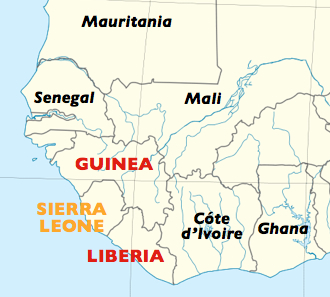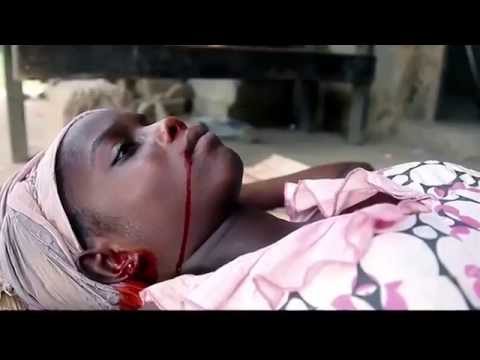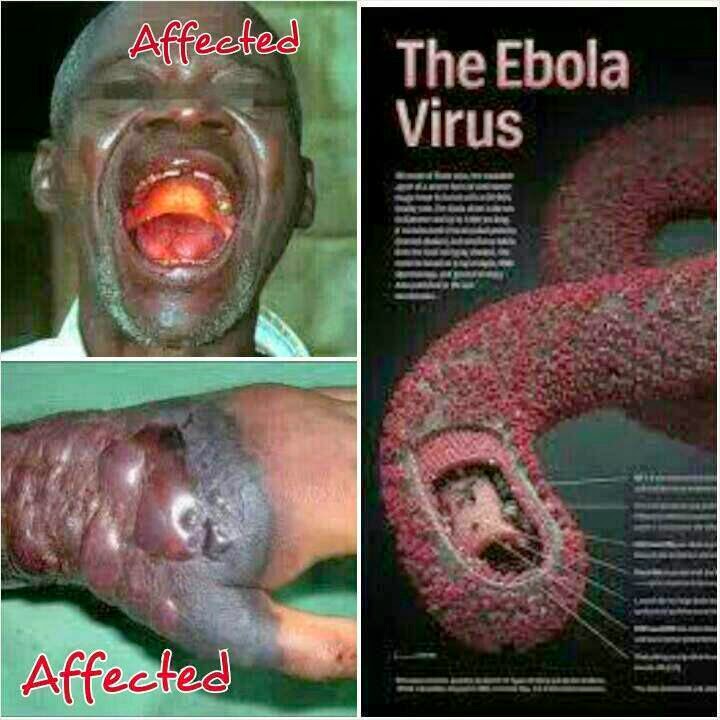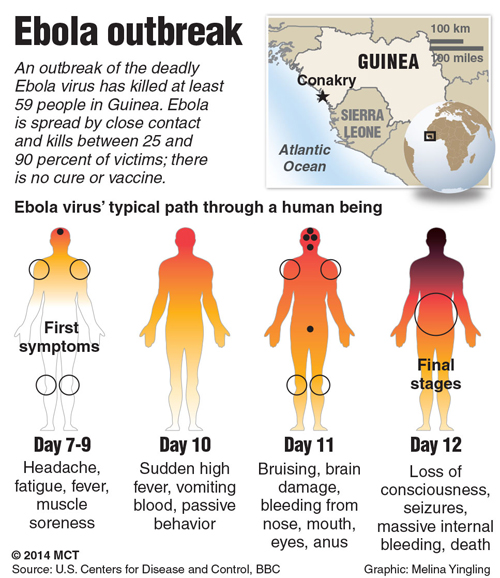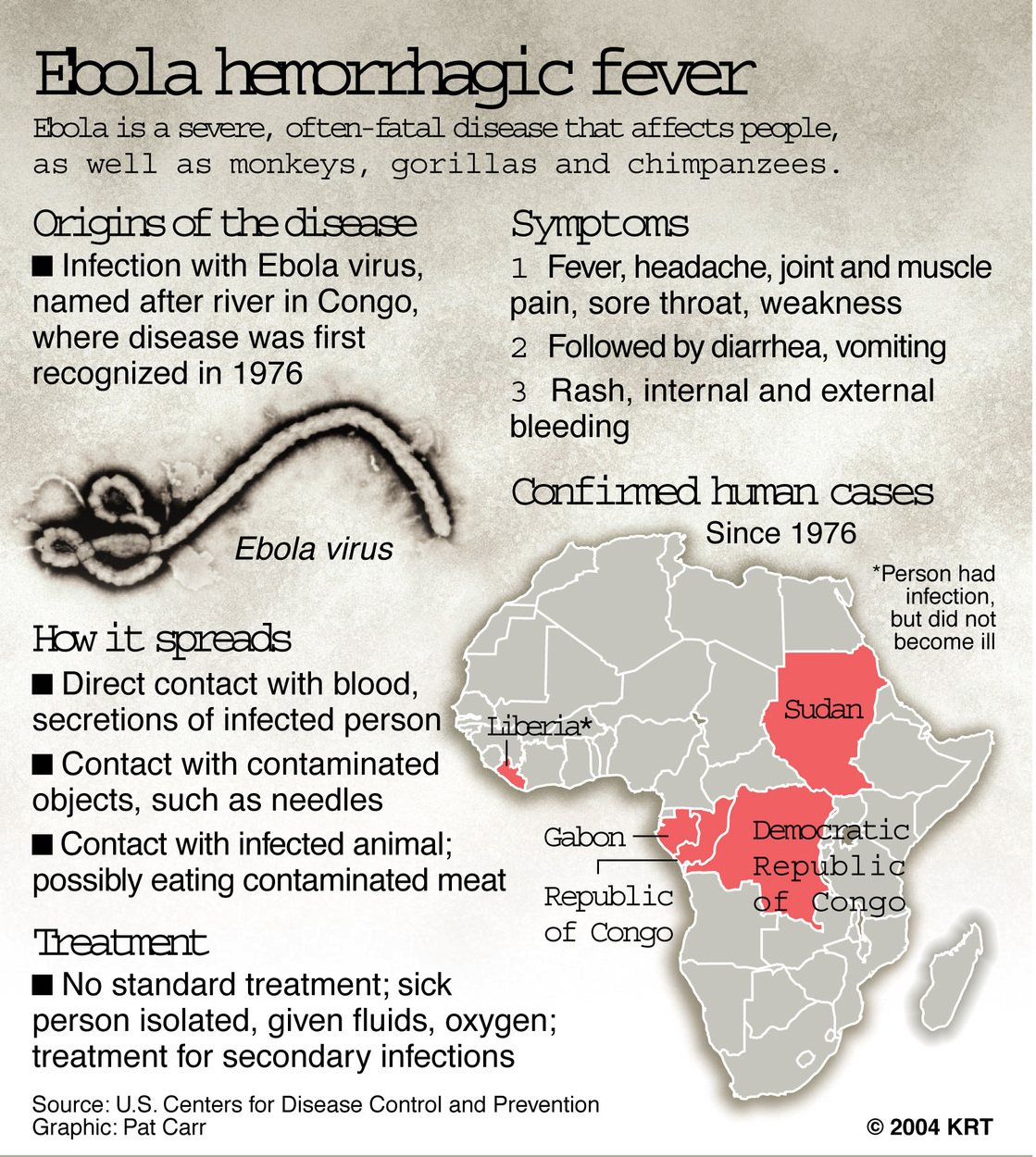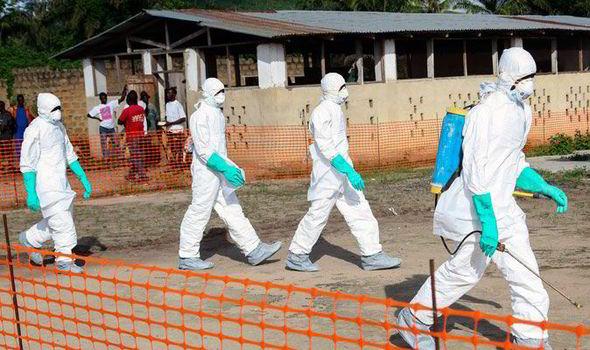Ebola
: Is the fear justified?
All you need to know
Ebola,
the biggest fear gripping the western world. Is it really
going to wipe a big population? It is too early to say,
but it is unlikely! According to various reports, as of
this publication, nearly 10,000 are infected in 3 West African
countries. It is definitely a human priority to contain
this outbreak otherwise it can become an epidemic.
Now,
here is all you need to know about the disease and its outbreak.
Let science rule over the fear!
|
|
|
Why there is so much panic around
E-bola?
Ebola is a rare, but deadly virus that
causes bleeding inside and outside the body. It is also
known as Ebola hemorrhagic fever. Ebola is named after Ebola
River (a tributary of Congo river) in Democratic Republic
of Congo where it originated in 1976.
There is a real panic around this outbreak
because 90% of people who were infected with this disease
died. As the virus spreads through the body, it damages
the immune system and organs. Ultimately, it causes dropping
of the blood-clotting cell levels, which invariably leads
to severe, uncontrollable bleeding.
Moreover, it can quickly infect their
immediate caretakers like their spouse, sons, daughters,
uncles and aunts. This disease is killing the whole family
in Liberia, Sierra Leone and Guinea. So far, this disease
was occurring in rural areas but this outbreak is occurring
in densely populated urban towns.
The fear is, if this outbreak is not contained,
it can reach other parts of the world very soon.
|
|
|
Will I get ebola if I come in contact
with an infected person?
It depends on how infected the other
person is. A person who has Ebola, but without symptoms
cannot spread the disease. Ebola has an incubation
period of 21 days (sometimes earlier) before showing symptoms
of the infection. Additionally, the current strain of the
virus does not spread through air, water, food or by a simple
contact like handshake. Ebola spreads to humans by contact
with the skin or bodily fluids of an infected person like
blood, vomit, sweat, faeces, urine or semen. This contact
can occur through a broken skin. mouth, nose, contaminated
clothing, bedding of an infected person. Caretaker of a
sick person or a person burying someone who died from the
disease are at risk to get infected.
|
|
What kind of symptoms one should
watch for?
At first, Ebola can feel like flu. Anytime
after 2nd day, real Ebola symptoms can show up. Symptoms
usually include weakness, high fever, headache, muscle
ache, joint ache, stomach ache, sore throat, and loss
of appetite.
At later stages of the infection, it causes
internal and external bleeding. Blood can ooze from
eyes, ears, nose and mouth. Vomit and coughs can contain
blood. Bloody diarrhea and rash can happen.
Sometimes it becomes difficult to diagnose
Ebola from symptoms. Diseases like cholera and malaria
needs to be ruled out. Blood test and tissue test can
diagnose Ebola.
If a person has Ebola, he or she is immediately
isolated from the public to prevent the spread.
Usually, fatality occurs due to multiple
organ failure or dehydration.
|
|
What kind of cure is available for
an infected person?
Unfortunately there is no proven cure for
this disease. Experimental drugs like ZMapp is available
but it has not been 100% successful.
Right now, any infected person is immediately
isolated from others and taken care in a specialy built
ward by specially clad care takers.
The infected person is hydrated using Intravenous
(IV) fluids and transfused with an Ebola survivor's blood.
Due to specialized health infrastructure,
the success rate of treating this disease is high in developed
countries than in developing countries.
|
|
What precaution I should take to protect
myself from this outbreak?
CDC recommends the following precaution to
protect yourself against Ebola:
- Practice careful hygiene. Avoid contact
with blood and body fluids.
- Do not handle items that may have come in contact with
an infected person’s blood or body fluids.
- Avoid funeral or burial rituals that require handling
the body of someone who has died from Ebola.
- Avoid contact with bats and nonhuman primates or blood,
fluids, and raw meat prepared from these animals.
- If you are from a developing country, try avoiding hospitals
where Ebola patients are being treated.
- After you return, monitor your health for 21 days and
seek medical care immediately if you develop symptoms of
Ebola.
- Avoid non-essential travel to Liberia, Sierra Leone and
Guinea. Follow usual precautions while traveling to Nigeria,
Democratic Republic of Congo.
You can get the latest update from CDC
site.
|
|
